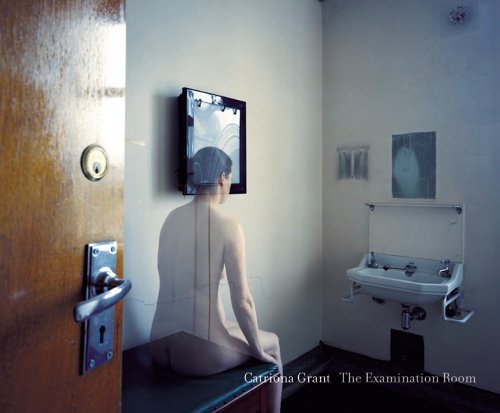The Examination Room
BookshopAbout The Book
Through large format photographs, Grant bases The Examination Room in what appears to be a disused hospital building. Unclothed female figures occupy redundant, utilitarian interiors. The figures stand and sit with their backs turned to us, with their faces hidden. Although their bodies are exposed and vulnerable, available for examination, we have no way of knowing how they are feeling, whether they are anxious or tired, relaxed or upset. For all that they show these are very private images relating to common individual experience of areas of life often hidden from view.
Most people have experienced sitting alone in a treatment room waiting to be seen by a consultant or doctor. The room can often feel oppressive and claustrophobic, with little to distract the mind, as one finds oneself surrounded by slightly menacing-looking medical furniture. There is an inevitable anxiety attached to these situations. It is held that the institution has the power to rid the body of its problem, so the individual must concede to its authority. The process of implicitly trusting and exposing oneself to a stranger is enabled by the impersonal and formal context of the institution.
Buy The Book
Would you like to buy this book? Contact info@belfastexposed.org to request a copy.






